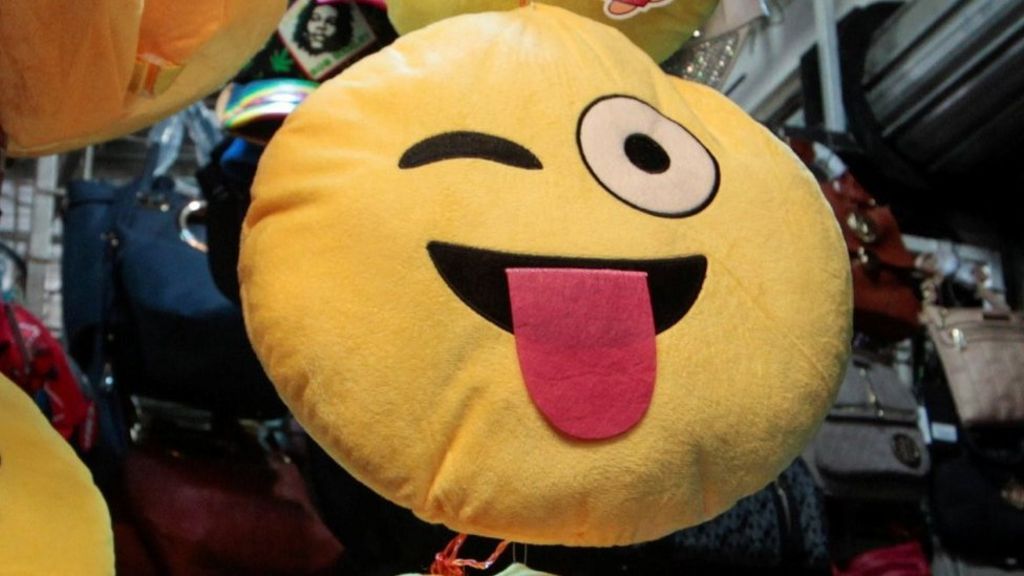Emojis Honoured In World Celebration

 Image copyright
Reuters
Image copyright
Reuters
New York's Empire State Building will be lit up in yellow to mark a day that organisers hope will put a smile on millions of faces.
It is one of several stunts planned for World Emoji Day, which celebrates the colourful symbols used in instant messages, on 17 July.
London's Royal Opera House will present 20 well-known operas and ballets in emoji form online.
There are 2,666 emojis currently on the official Unicode Standard list.
The Unicode consortium lays out the framework for emojis and decides what should be depicted, but companies such as Apple and Google are free to create their own designs.
This year, Twitter is expected to crowdsource ideas for new emojis.
The founder of World Emoji Day, Jeremy Burge, who is also on one of Unicode's committees, said the consortium considered hundreds of applications for new emojis every year.
"You can't buy your way in - and it makes companies mad," he said.
"You need to fulfil criteria. There has to be demand for it. Brands or logos are not permitted."
Recent additions to the emojis, which appear on smartphone device keyboards, have included a range of skin tones and Scotland's saltire.
Some celebrities, including Kim Kardashian and Justin Bieber, have launched their own range of icons for fans to purchase - but Mr Burge said that consumers should be aware that they have limitations.
"Kimojis and Justmojis are stickers. They don't work in every app, you need to download them, they won't come with your phone," he said.
'Calendar'
Emojis have been around since the 1990s and Apple first included them in its iPhone keyboard in 2011.
The first World Emoji Day took place in 2014. The date - 17 July - was chosen because it is the date which appears on the emoji for "calendar".
Mr Burge, who also works at the emoji search engine Emojipedia, said he did not accept any sponsorship for the event.
"I think emojis are OK. Some people don't like them because they're not formal," said Dr Laura Dominguez, associate professor in linguistics at the University of Southampton.
"I think they are useful for certain things and sometimes an emoji has more meaning and expression than words.
"If an emoji can express the same message as you could say with a whole sentence, why not use an emoji?"
'Crying with laughter'
However, despite their popularity, emojis are unlikely to replace written language and be recognised as a language in their own right, she said.
"The purposes of language are communication and thought," said Dr Dominguez.
"You need language to think. Can you think in emojis? I would imagine that even people who use them a lot to communicate probably don't use them when they are thinking."

According to the digital keyboard firm Swiftkey, the most used emoji of 2016 in the UK was the one of a face crying with laughter, second was a face blowing a kiss, with a red heart third most popular.
The firm said it analysed 400 million bits of "emoji data".
Mr Burge said his current favourite is the rocket - for "let's go".
"I do get bored with [a favourite emoji] after too long," he said. "You don't want to eat too much of your favourite food."
From Chip War To Cloud War: The Next Frontier In Global Tech Competition
The global chip war, characterized by intense competition among nations and corporations for supremacy in semiconductor ... Read more
The High Stakes Of Tech Regulation: Security Risks And Market Dynamics
The influence of tech giants in the global economy continues to grow, raising crucial questions about how to balance sec... Read more
The Tyranny Of Instagram Interiors: Why It's Time To Break Free From Algorithm-Driven Aesthetics
Instagram has become a dominant force in shaping interior design trends, offering a seemingly endless stream of inspirat... Read more
The Data Crunch In AI: Strategies For Sustainability
Exploring solutions to the imminent exhaustion of internet data for AI training.As the artificial intelligence (AI) indu... Read more
Google Abandons Four-Year Effort To Remove Cookies From Chrome Browser
After four years of dedicated effort, Google has decided to abandon its plan to remove third-party cookies from its Chro... Read more
LinkedIn Embraces AI And Gamification To Drive User Engagement And Revenue
In an effort to tackle slowing revenue growth and enhance user engagement, LinkedIn is turning to artificial intelligenc... Read more

